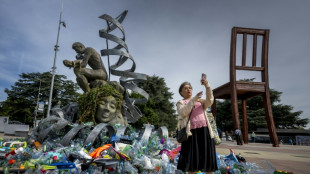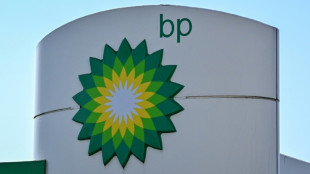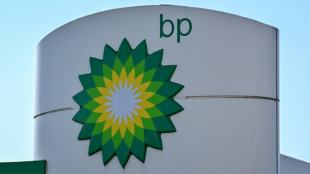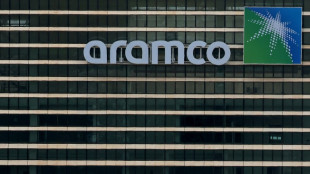
| RBGPF | 0% | 74.94 | $ | |
| SCU | 0% | 12.72 | $ | |
| RYCEF | 2.14% | 14.5 | $ | |
| SCS | 38.6% | 16.58 | $ | |
| CMSC | 0.87% | 23.07 | $ | |
| VOD | 0.72% | 11.04 | $ | |
| RELX | 0.73% | 51.97 | $ | |
| BTI | 2.16% | 55.55 | $ | |
| CMSD | 1.18% | 23.63 | $ | |
| NGG | 1.14% | 72.65 | $ | |
| GSK | 0.32% | 37.68 | $ | |
| RIO | 0.58% | 60 | $ | |
| BP | 2.28% | 32.49 | $ | |
| BCC | -0.77% | 82.71 | $ | |
| AZN | 0.86% | 74.59 | $ | |
| JRI | 0.76% | 13.2 | $ | |
| BCE | -1.12% | 23.31 | $ |

UK-France migrant returns deal takes effect
A "one-in, one-out" deal in which Britain can return some migrants who cross the Channel in small boats back to France came into force on Tuesday, the UK government announced.
The interior ministry said that British authorities were "operationally ready" and that migrant detentions were expected to begin "within days" following ratification of the agreement.
"Today we send a clear message -- if you come here illegally on a small boat you will face being sent back to France," Prime Minister Keir Starmer said in a statement after striking the deal with French President Emmanuel Macron last month.
The agreement seeks to curb record levels of irregular Channel crossings that are causing discontent in Britain and helping fuel the rise of the hard-right Reform UK party.
Under the arrangement -- for now a pilot scheme set to run until June 2026 -- irregular migrants arriving on UK shores could be detained and returned to France if they are deemed ineligible for asylum.
In exchange, the UK will accept an equal number of migrants from France who can apply for asylum via an online platform, giving priority to nationalities most vulnerable to smugglers and to people with ties in Britain.
The two governments signed the final text last week, with the EU Commission giving its "green light on this innovative approach", Britain's Home Office said in a statement late Monday.
"The unscrupulous business model of smugglers must be broken," the European Union's migration commissioner Magnus Brunner wrote on X Tuesday.
But refugee charities have criticised the deal, urging the British government to provide more safe and legal routes for asylum seekers instead.
The number of migrants making the dangerous journey in flimsy dinghies this year crossed 25,000 at the end of July, the highest tally ever at this point in the year.
The rise, which the government has partly attributed to extended periods of good weather, means Labour leader Starmer is struggling to fulfil one of his main pledge's before winning last year's general election.
- Social media ads -
In recent weeks, anti-immigration protesters and counter-protesters have clashed outside hotels housing asylum seekers in Britain, with some demonstrations turning violent.
Starmer has tried to portray the deal as a diplomatic victory after years of faltering cooperation between France and the UK on the politically sensitive issue.
"This is the product of months of grown-up diplomacy delivering real results for British people as we broker deals no government has been able to achieve," he said.
While the agreement has also met with criticism in northern France, where some officials say the scheme is too favourable to the UK, Nigel Farage's anti-immigrant Reform UK party says it does not go far enough to secure Britain's borders.
Interior minister Yvette Cooper said Tuesday that she would not put a number on how many migrants would be deported under the deal.
"Of course, it will start with lower numbers and then build, but we want to be able to expand it," she told BBC radio.
The Home Office this week pledged £100 million ($132 million) for law enforcement, including additional staff and technology, to "tackle" gangs who organise the crossings.
Starmer's government also said it would make it an offence to promote on social media dangerous immigration routes into the UK, including via the Channel.
Under the new provision, which will be part of a border security bill making its way through parliament, those found advertising such crossings could be fined and face up to five years in prison.
According to a Home Office analysis, 80 percent of migrants arriving via small boats told officials they used social media during the process.
H.al-Zayani--BT




